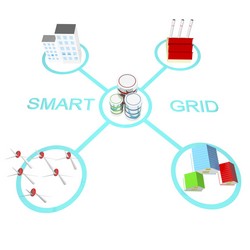Intelligent planning approach for distribution grids ushers in new era for electric vehicles
The smart grid is transforming the way people think about and use energy. However, the rise and spread of new environmentally friendly technologies such as plug-in electric vehicles (EVs) and distributed energy resources (DERs) are posing major system-wide concerns about securing the grid. Research can address and resolve the challenges of integrating these technologies into this new electricity infrastructure. The EU-funded PLANGRIDEV(opens in new window) (Distribution grid planning and operational principles for EV mass roll-out while enabling DER integration) project provided new network planning tools for distribution system operators (DSOs). Project partners developed several tools and methods enabling DSOs to design new planning rules and investment strategies or adapt existing ones. This ensures the technical efficiency and cost-effective development of infrastructures in order to facilitate the large-scale rollout of EVs in European networks characterised by different levels of DER penetration. They also developed business models and made recommendations for regulatory frameworks. Using their proposed new smart grid planning approach through simulations and tests, the PLANGRIDEV team successfully validated its feasibility. This approach leads to less expensive grids while providing all the energy customers need. Overall, findings show that smart charging is the only way for a mass EV rollout in Europe to prevent considerable costs in reinforcing the grids. Results also demonstrate that the additional energy needed to supply EVs can be easily provided by the existing energy system. The power demand of uncontrolled charging would result in substantial grid investments. Thanks to PLANGRIDEV, the new planning rules taking into account increased DERs and EV penetration will help ensure efficiency and cost-effective development of electricity infrastructures. They should also help DSOs to optimise grid planning, considering the stochastic nature of renewable energy sources and EVs, and maximise DER hosting capacity. Full details of the PLANGRIDEV public report(opens in new window) can be accessed showing all data collected during the project.







